Who Is Ales Bialiatski – The Winner Of Nobel Peace Prize In 2022?
The Peace Prize laureates represent civil society in their home countries. They have for many years promoted the right to criticize power and protect the fundamental rights of citizens. They have made an outstanding effort to document war crimes, human rights abuses, and the abuse of power. Together they demonstrate the significance of civil society for peace and democracy.
This year’s Peace Prize is awarded to human rights advocate Ales Bialiatski from Belarus, the Russian human rights organisation Memorial, and the Ukrainian human rights organisation Center for Civil Liberties.
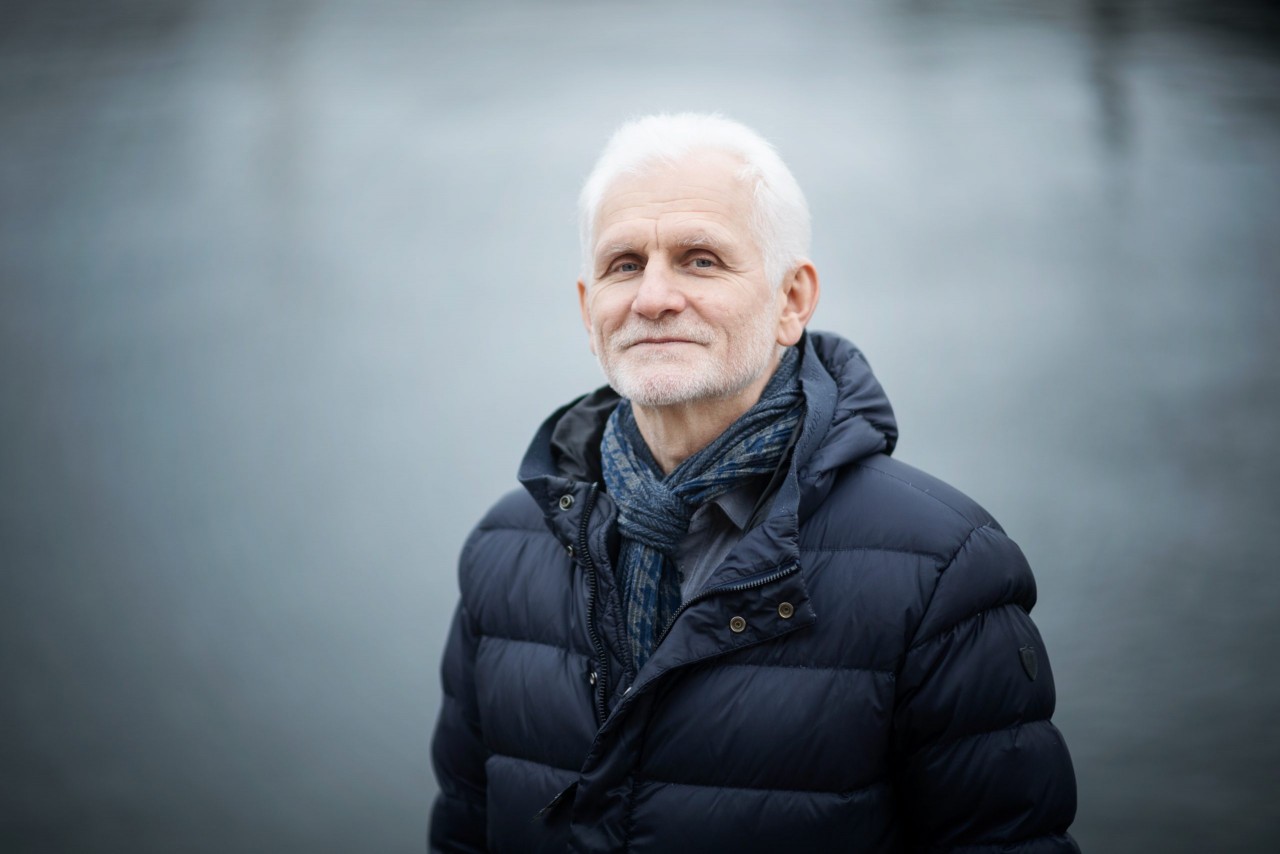 |
| Photo: Right Livelihood Award |
Ales Bialiatski was one of the initiators of the democracy movement that emerged in Belarus in the mid-1980s. He has devoted his life to promoting democracy and peaceful development in his home country. Among other things, he founded the organization Viasna (Spring) in 1996 in response to the controversial constitutional amendments that gave the president dictatorial powers and that triggered widespread demonstrations. Viasna provided support for the jailed demonstrators and their families. In the years that followed, Viasna evolved into a broad-based human rights organization that documented and protested against the authorities’ use of torture against political prisoners.
Government authorities have repeatedly sought to silence Ales Bialiatski. He was imprisoned from 2011 to 2014. Following large-scale demonstrations against the regime in 2020, he was again arrested. He is still detained without trial. Despite tremendous personal hardship, Mr Bialiatski has not yielded an inch in his fight for human rights and democracy in Belarus.
The human rights organisation Memorial was established in 1987 by human rights activists in the former Soviet Union who wanted to ensure that the victims of the communist regime’s oppression would never be forgotten. Nobel Peace Prize laureate Andrei Sakharov and human rights advocate Svetlana Gannushkina were among the founders. Memorial is based on the notion that confronting past crimes is essential in preventing new ones.
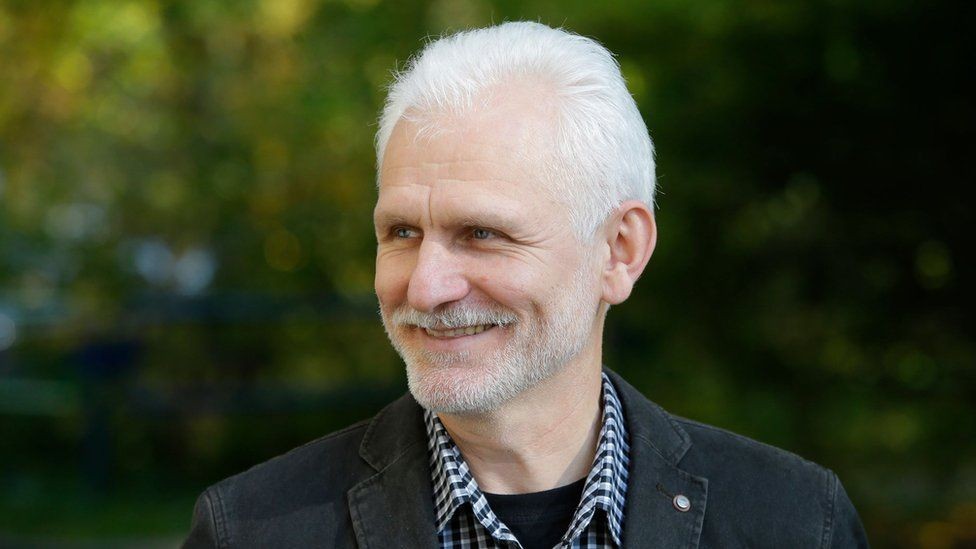 |
| Photo: BBC |
After the collapse of the Soviet Union, Memorial grew to become the largest human rights organisation in Russia. In addition to establishing a center of documentation on victims of the Stalinist era, Memorial compiled and systematized information on political oppression and human rights violations in Russia. Memorial became the most authoritative source of information on political prisoners in Russian detention facilities. The organization has also been standing at the forefront of efforts to combat militarism and promote human rights and government based on rule of law.
When civil society must give way to autocracy and dictatorship, peace is often the next victim. During the Chechen wars, Memorial gathered and verified information on abuses and war crimes perpetrated on the civilian population by Russian and pro-Russian forces. In 2009, the head of Memorial’s branch in Chechnya, Natalia Estemirova, was killed because of this work.
Civil society actors in Russia have been subjected to threats, imprisonment, disappearance, and murder for many years. As part of the government’s harassment of Memorial, the organization was stamped early on as a “foreign agent”. In December 2021, the authorities decided that Memorial was to be forcibly liquidated and the documentation center was to be closed permanently. The closures became effective in the following months, but the people behind Memorial refuse to be shut down. In a comment on the forced dissolution, chairman Yan Rachinsky stated, “Nobody plans to give up.”
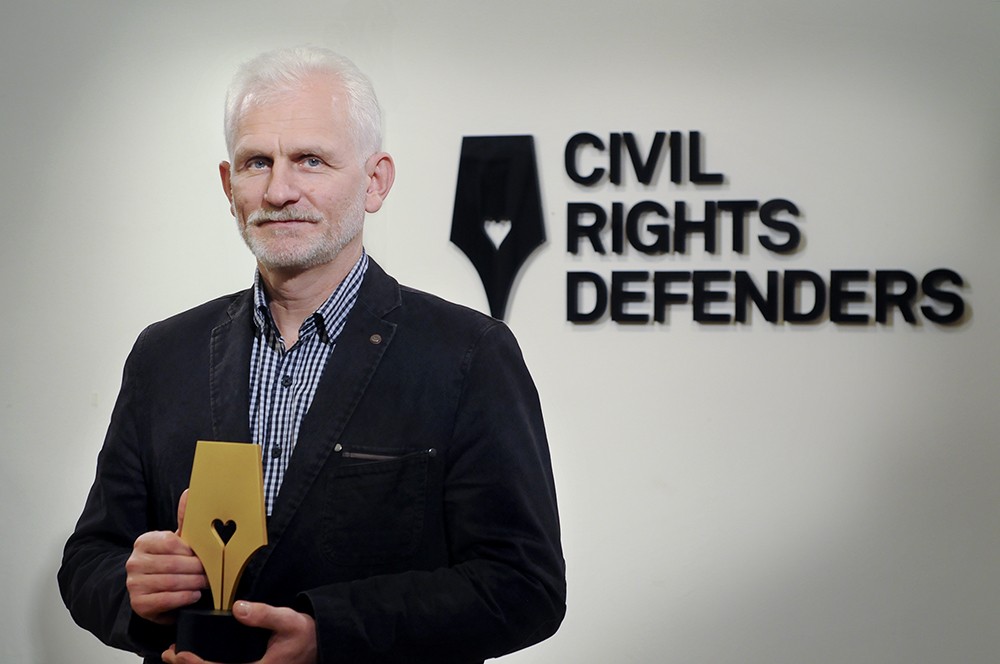 |
| Photo: Civil Rights Defenders |
The Center for Civil Liberties was founded in Kyiv in 2007 for the purpose of advancing human rights and democracy in Ukraine. The center has taken a stand to strengthen Ukrainian civil society and pressure the authorities to make Ukraine a full-fledged democracy. To develop Ukraine into a state governed by rule of law, Center for Civil Liberties has actively advocated that Ukraine become affiliated with the International Criminal Court.
After Russia’s invasion of Ukraine in February 2022, Center for Civil Liberties has engaged in efforts to identify and document Russian war crimes against the Ukrainian civilian population. In collaboration with international partners, the center is playing a pioneering role with a view to holding the guilty parties accountable for their crimes.
By awarding the Nobel Peace Prize for 2022 to Ales Bialiatski, Memorial and the Center for Civil Liberties, the Norwegian Nobel Committee wishes to honour three outstanding champions of human rights, democracy and peaceful co-existence in the neighbour countries Belarus, Russia and Ukraine. Through their consistent efforts in favour of humanist values, anti-militarism and principles of law, this year’s laureates have revitalised and honoured Alfred Nobel’s vision of peace and fraternity between nations – a vision most needed in the world today.
Ales Bialiatski – Biography
Ales Bialiatski is a human rights activist in Belarus, leading an almost 30-year campaign for democracy and freedom. In 1996, he founded the Minsk-based Human Rights Center “Viasna” to provide support for political prisoners. It has since become the country’s leading non-governmental organisation contributing to the development of the civil society in Belarus through documenting human rights abuses and monitoring elections.
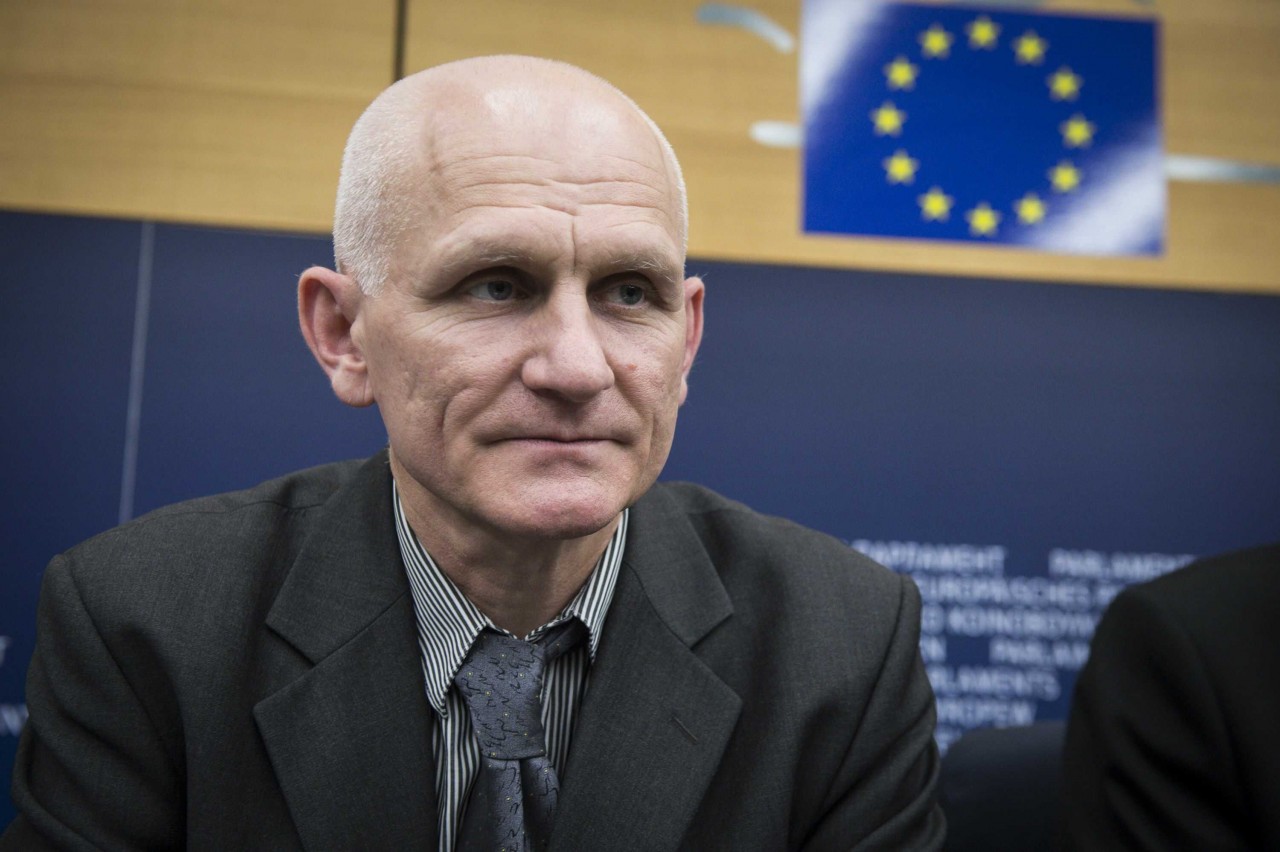 |
| Photo: Wiktor Dabkowski/dpa/AP |
Ales Viktaravich Bialiatski (born 25 September 1962) is a Belarusian pro-democracy activist and prisoner of conscience known for his work with the Viasna Human Rights Centre. An activist for Belarusian independence and democracy since the early 1980s, Bialiatski is a founding member of Viasna and the Belarusian Popular Front, serving as leader of the latter from 1996 to 1999. He is also a member of the Coordination Council of the Belarusian opposition. He has been called “a pillar of the human rights movement in Eastern Europe” by The New York Times, and recognised as a prominent pro-democracy activist in Belarus.
Bialiatski’s defence of human rights in Belarus has brought him numerous international accolades. In 2020, he won the Right Livelihood Award, widely known as the “Alternative Nobel Prize”. In 2022, Bialiatski was awarded the 2022 Nobel Peace Prize, along with the organisations Memorial and Centre for Civil Liberties.
Bialiatski has been imprisoned twice; firstly from 2011 to 2014, and currently since 2021, on both occasions on charges of tax evasion. Bialiatski, as well as other human rights activists, have called the charges politically motivated.
Early life and education
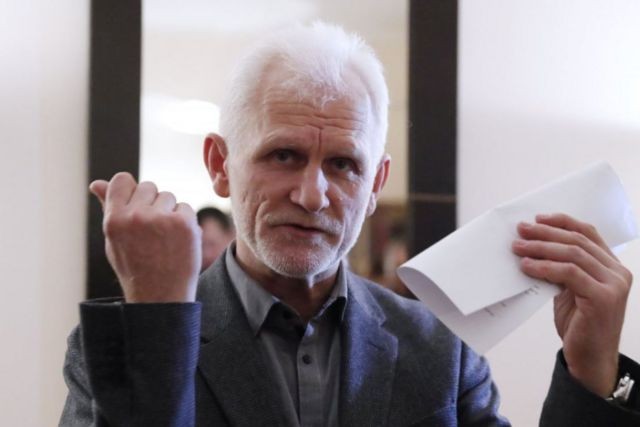 |
| Photo: BBC |
Bialiatski was born in Vyartsilya, in today’s Karelia, Russia, to Belarusian parents. His father Viktar Bialiatski is a native of the Rahačoŭ District, and his mother Nina comes from the Naroŭlia District. In 1965, the family returned to Belarus to settle in Svietlahorsk, Gomel Region.
Bialiatski is a scholar of Belarusian literature and graduated from Homiel State University in 1984 with a degree in Russian and Belarusian Philology. After graduation, Bialiatski worked as a schoolteacher in the Lieĺčycy District in Gomel Region.
From 1985 to 1986, he served in the army as an armoured vehicle driver in an antitank artillery battery near Yekaterinburg (then Sverdlovsk), Russia.
Career
In the early 1980s, Bialiatski became involved in a number of pro-democracy initiatives, including a group called Belarusian Clandestine Party “Independence” aiming to foster Belarus’s leaving the Soviet Union and forming a sovereign and democratic country. The group published an illegal outlet called “Burachok” and co-organized the first-ever anti-Soviet protests, most notably the Dziady demonstrations in 1987 and 1988, a protest against the construction of the Daugavpils hydro-electric power plant, a rally protesting the demolition of the Upper Town architectural heritage in Minsk, and a memorial ceremony at Kurapaty in 1988. In December 1987, Bialiatski was on the organizing committee of the 1st Assembly of Belarusian Communities.
In 1989, Bialiatski received a PhD from the Belarusian Academy of Sciences. During his doctoral studies, Bialiatski helped found the Tutejshyja Association of Young Writers, serving as the group’s chairman from 1986 to 1989, which resulted in harassment from the academy administration. In 1988 Bialiatski co-organized the Martyrology of Belarus. He was also one of the founding members of the Belarusian Popular Front and the Belarusian Catholic Community.
In 1989, Bialiatski worked as a junior researcher at the Museum of the History of the Belarusian literature. Later the same year, he was elected director of the Maksim Bahdanovich Literary Museum. Bialiatski left the museum in August 1998, after arranging several key exhibitions, including two in Minsk, one in the Maladziečna District and one in Yaroslavl, Russia.
During Bialiatski’s directorship, the museum hosted numerous public events on political, cultural and religious issues. In 1990, the museum building in central Minsk housed the editorial office of “Svaboda”, one of the first pro-democratic newspapers in Belarus. Bialiatski provided the legal address for dozens of NGOs, including the Viasna Human Rights Centre and the Centre “Supolnasts”. He invited several young authors, including Palina Kachatkova, Eduard Akulin, Siarhei Vitushka, and Ales Astrautsou, to work at the museum.
Bialiatski was member of the Minsk City Council of Deputies between 1991 and 1996. On 20 August 1991, the day after the 1991 Soviet coup d’état attempt, he, together with 29 other members of the council, made an open appeal to the people of Minsk “to be faithful to the legally elected authorities and to seek all constitutional means in order to end the activities of the State Emergency Committee”. On 5 September 1991, after the Minsk City Council approved the use of national symbols, Bialiatski brought a white-red-white flag to the Council chamber. The flag was the first to be officially flown on the building of the Minsk City Council.
Bialiatski was Secretary of the Belarusian Popular Front (1996–1999) and deputy chairman of the BPF (1999–2001).
Bialiatski founded the Viasna Human Rights Centre in 1996. The Minsk-based organization which was then called “Viasna-96”, was transformed into a nationwide NGO in June 1999. On 28 October 2003 the Supreme Court of Belarus cancelled the state registration of the Viasna Human Rights Centre for its role in the observation of the 2001 presidential election. Since then, the leading Belarusian human rights organization has been working without registration.
Bialiatski was chairman of the Working Group of the Assembly of Democratic NGOs (2000–2004). In 2007–2016, he was vice-president of the International Federation for Human Rights (FIDH).
Bialiatski is a member of the Union of Belarusian Writers (since 1995) and the Belarusian PEN-Centre (since 2009).
During the 2020 Belarusian protests, Bialiatski became a member of the Coordination Council of Sviatlana Tsikhanouskaya.
On 14 July 2021, the Belarusian police searched Viasna’s employees’ homes around the country and raided the central office. Bialiatski and his colleagues Vladimir Stephanovich and Vladimir Labkovich were arrested. On 6 October 2021, Bialiatski was charged with tax evasion with a maximum penalty of 7 years in prison. As of 7 October 2022, he was still in prison.
The post Who Is Ales Bialiatski – The Winner Of Nobel Peace Prize In 2022? appeared first on Vietexplorer.com.
View more from VietExplorer:
Famous artists slated to promote tourism under proposalNo vaccine tours to the US this year: tourism department
Florist raises 2 duckling staff
Greenery in Truong Sa island district
Vietnam’s iconic One Pillar Pagoda reconstructed using virtual reality technology
Vietnamese film ‘Old Father’ hits U.S. cinemas
Unique undersea path at Nhat Tu Son Island
Vietnam’s unique symphony orchestra, with video
Famous Vietnamese paintings to be auctioned at Christie’s
In photo: Shopping in Covid-19 – Put money in bucket, goods in pot
Brownish yellow hollong flowers carpet Saigon sidewalk
Y Ty rice terraces in pouring-water season
Vietnam’s cashew industry suffering
COVID-19-hit workers should benefit from 2.6 billion USD aid package
FDI disbursement up 6.7 percent
Photo Hanoi ’21 month to connect public with photographic art
Ngo Tu Ha – the first printer of banknotes with Uncle Ho’s image
Belgian woman in Vietnam: Pick up lost sandal on roads
The ancient songs of Tuyen Quang
Heritage trees on Truong Sa archipelago
Comments
Post a Comment